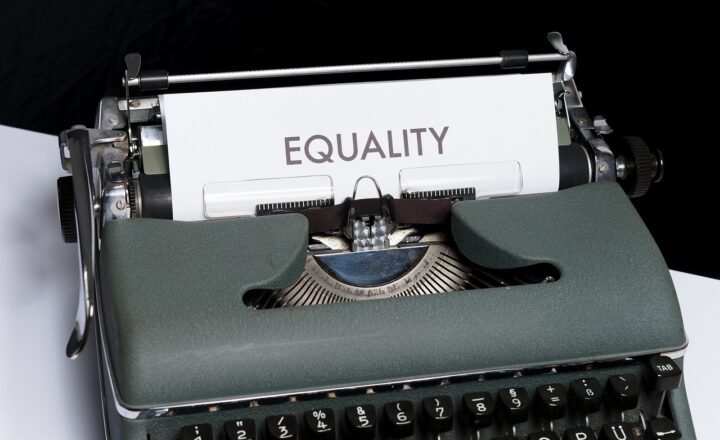How Naval Blockades Influence the Outcomes of Prolonged Conflicts
November 16, 2024

Naval blockades have been a strategic tool employed in warfare for centuries, playing a crucial role in the outcomes of prolonged conflicts. These maritime strategies have the power to alter the course of wars, influencing not only military engagements on the sea but also economic and political landscapes on land. In this article, we will delve into the intricate world of naval blockades, examining their historical significance, tactical applications, and the factors that determine their effectiveness.
1. Understanding Naval Blockades
A naval blockade involves the use of naval forces to prevent maritime traffic from entering or leaving a specific area. This can be used to restrict the supply of essential goods, military equipment, and personnel to an enemy, while also limiting their ability to export their own resources. The goal of a blockade is to weaken an adversary’s ability to sustain war efforts, thereby hastening the end of the conflict on favorable terms.
Naval blockades can be categorized into two main types:
- Complete Blockade: This restricts all shipping within a designated area, as seen during the American Civil War in the Anaconda Plan, where the Union sought to suffocate the Confederacy economically by blocking southern ports.
- Partial Blockade: In this instance, only specific goods or vessels are targeted, allowing limited trade to continue. This strategy is often used when a full blockade might provoke significant retaliation or escalate tensions.
Understanding the nuances of naval blockades is essential to analyzing their influence over prolonged conflicts. Next, let’s explore the historical context and operational effectiveness of such strategies.
2. Historical Case Studies of Naval Blockades
Naval blockades have a rich history. Here, we will examine some pivotal examples to illustrate their significance.
2.1. The British Naval Blockade during World War I
The British naval blockade of Germany during World War I stands as a powerful case study. Implemented from 1914 to 1919, the blockade aimed to restrict food and war material imports into Germany, leading to severe shortages and widespread malnutrition among the civilian population. The blockade successfully contributed to undermining German morale and military effectiveness, ultimately pressuring Germany to seek an armistice.
This blockade was a clear example of how controlling sea access could leverage significant political and psychological advantages in warfare.
2.2. The Cuban Missile Crisis Blockade
In 1962, during the Cuban Missile Crisis, the United States imposed a naval blockade—termed a “quarantine”—around Cuba to prevent Soviet shipments of military equipment to the island. This blockade was crucial in averting a potential outbreak of nuclear conflict. The strategy effectively limited the Soviet Union’s ability to reinforce its position in Cuba, eventually leading to a diplomatic resolution without military engagement.
The successful use of the naval blockade demonstrated its power as a non-violent but firm strategy in international politics.
3. The Military and Economic Impacts of Naval Blockades
Naval blockades induce significant military and economic ramifications.
3.1. Military Effects
By preventing the movement of military supplies, troops, and reinforcements, a blockade can diminish an adversary’s operational capabilities. The blockage often forces the enemy to adapt its military strategies, stretching its resources and potentially leading to mistakes that can be exploited by the blockading forces.
3.2. Economic Consequences
Economically, a well-implemented blockade can cripple an enemy by starving them of the necessary resources for warfare. Industries reliant on raw material imports can collapse. Public sentiment often turns against the war effort when civilians face shortages and suffering, increasing pressure on the government to negotiate peace or capitulate. The long-term economic consequences can persist well after the cessation of hostilities, impacting post-war recovery and stability.
4. Factors Influencing the Effectiveness of Naval Blockades
Not all naval blockades yield the desired outcomes. Several factors determine their effectiveness, including:
- Geography: The terrain and geography of a region can significantly influence a blockade’s success. Natural chokepoints (like straits) provide opportunities for effective blockading, whereas vast coastlines make enforcement more challenging.
- International Law: The legitimacy of a blockade can be challenged under international law, especially if deemed excessive or harmful to civilian life. Therefore, political considerations must be taken into account to maintain legitimacy and support from allies and neutral states.
- Technological Advances: Modern naval capabilities, including surveillance and reconnaissance technology, significantly augment the efficacy of blockades. Drones and satellites enhance monitoring capabilities, ensuring compliance with the blockade while identifying potential breaches swiftly.
- Adaptation by the Blockaded State: An important factor is how effectively the blockaded nation adapts. Nations may develop clandestine routes to circumvent blockades or seek assistance from allies for goods. Historical examples exist where blocked states found alternative means to acquire resources, mitigating the blockade’s impacts.
Understanding these elements is critical for exploring how future conflicts may be influenced by naval blockades.
5. The Future of Naval Blockades in Modern Warfare
As we look to the future, the role of naval blockades in modern conflicts will likely evolve. The rise of asymmetric warfare, cyber capabilities, and the emergence of new powers will shape naval strategies.
The increasing globalization of trade, alongside environmental considerations and humanitarian law, will also influence how and when blockades are implemented. Ensuring the protection of civilian populations while achieving strategic military goals will necessitate a careful balancing act.
Ultimately, the effectiveness of naval blockades in future conflicts will depend on a combination of technological advancements, international cooperation, and the ability to navigate politically sensitive maritime environments.
Conclusion
In conclusion, naval blockades are multifaceted tools of war that can decisively influence the outcomes of prolonged conflicts. By restricting maritime movements, blockades exert economic and military pressure that can lead to a favorable resolution for the blockading nation. However, their effectiveness hinges on various factors including geography, international norms, adaptive strategies by the blockaded state, and advancements in naval technology. As geopolitical rivalries continue to shape the global landscape, the strategic use of naval blockades will undoubtedly remain pertinent, warranting further study and analysis in the context of modern warfare.
Whether in historical contexts or future scenarios, understanding naval blockades provides critical insights into how maritime strategies can dictate the realities of land-based conflicts, influencing not just the outcomes of wars, but also the political landscapes that emerge in their wake.







